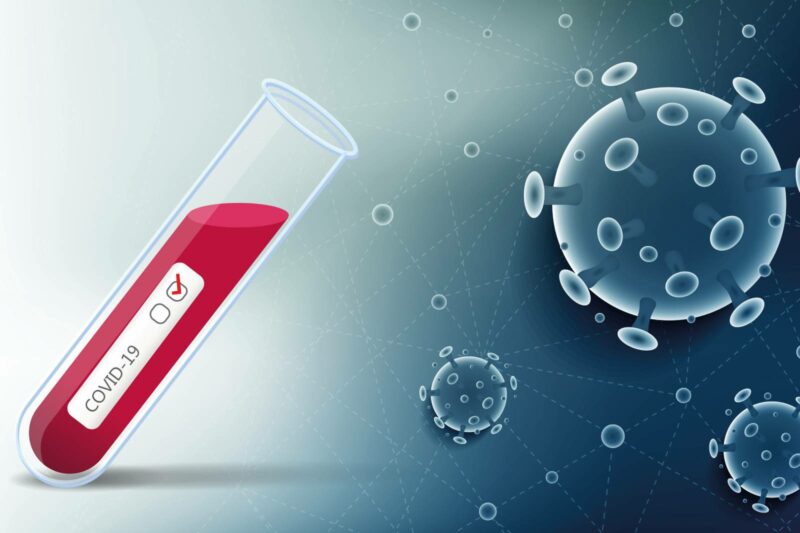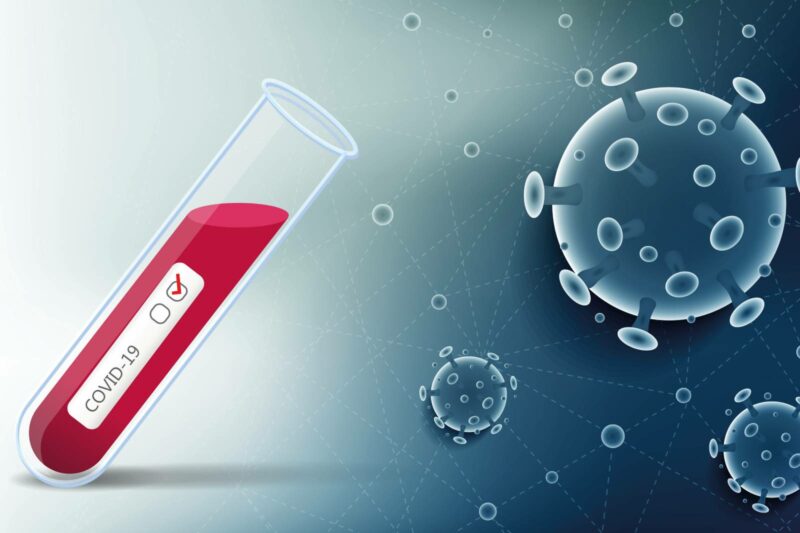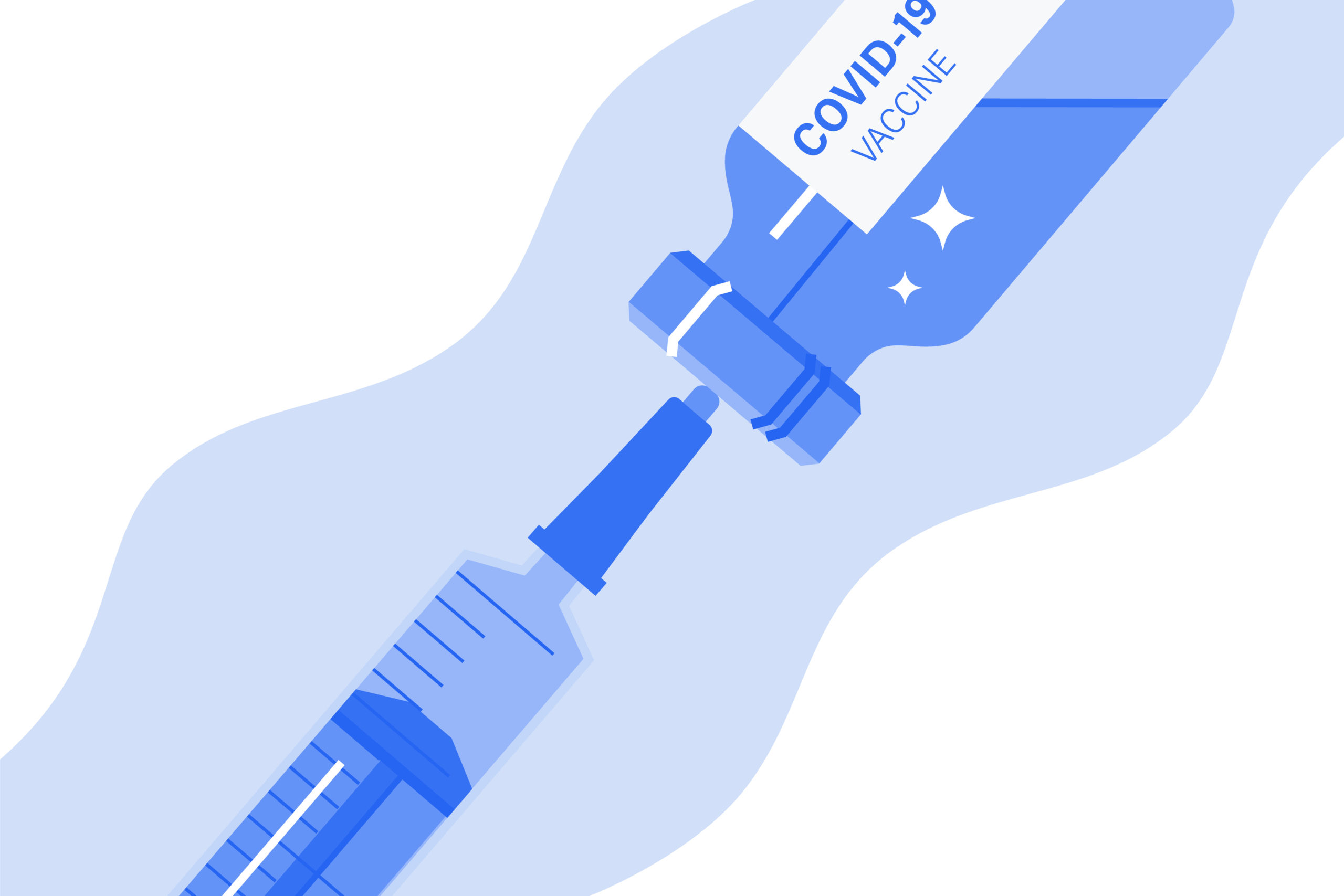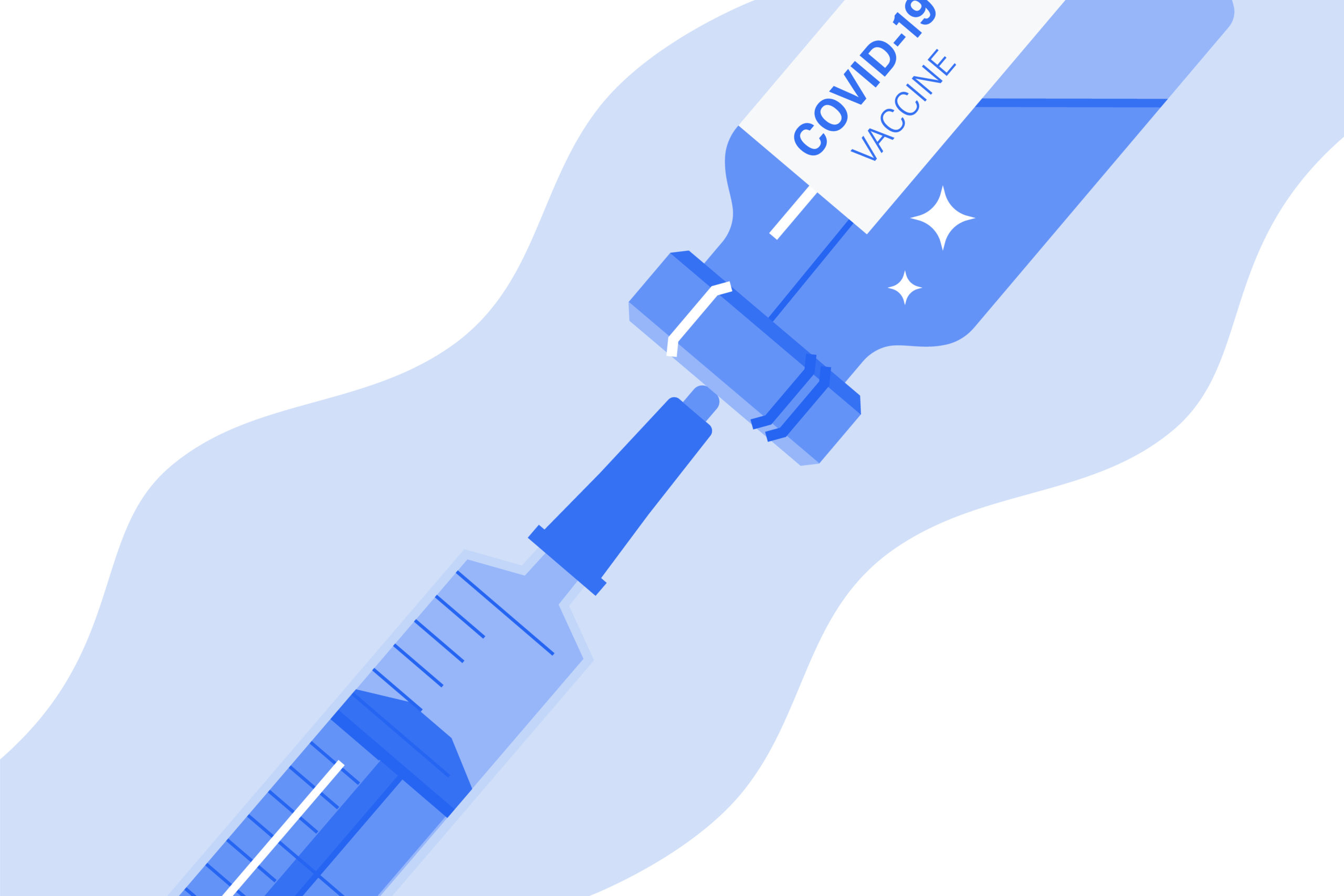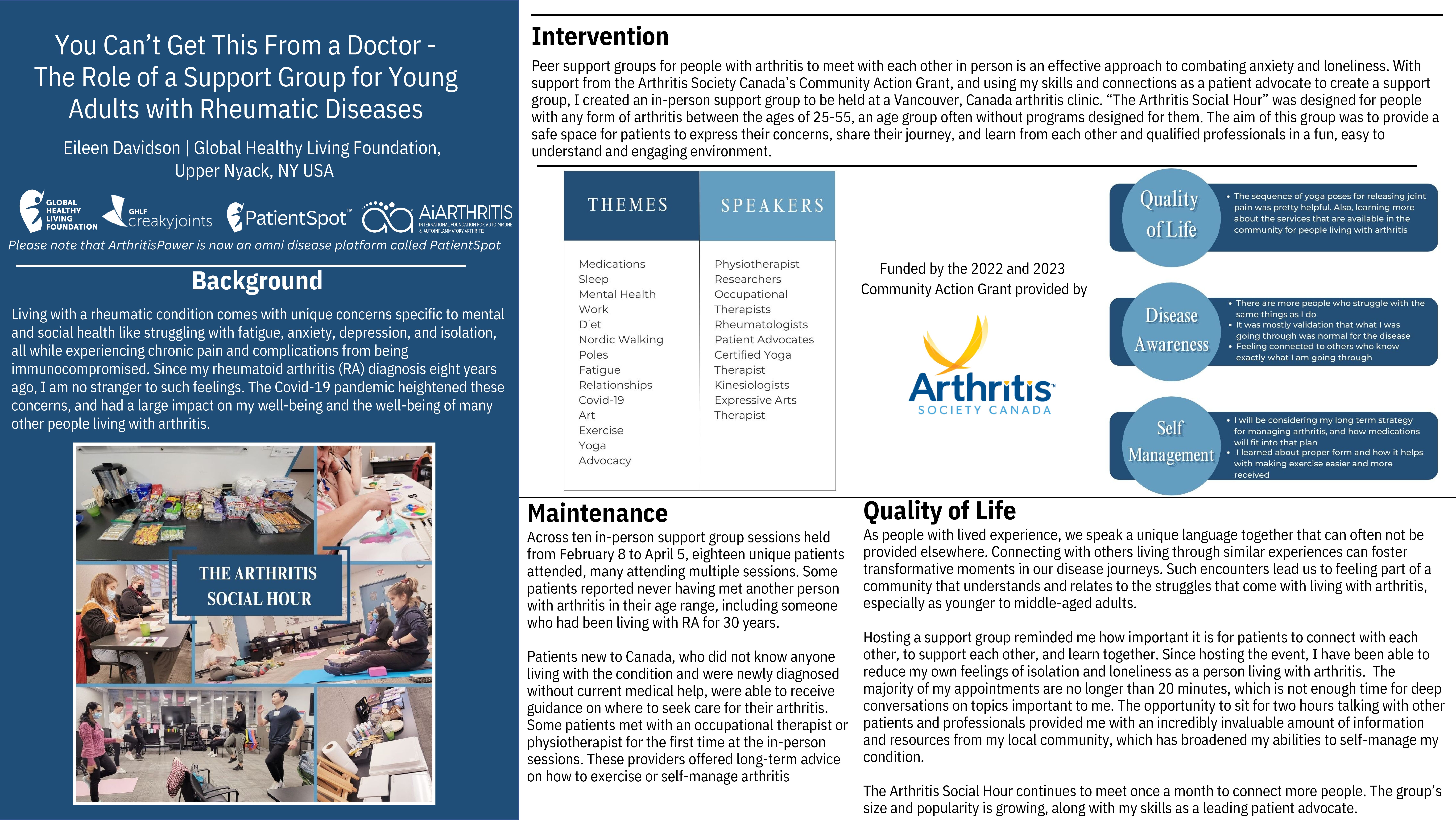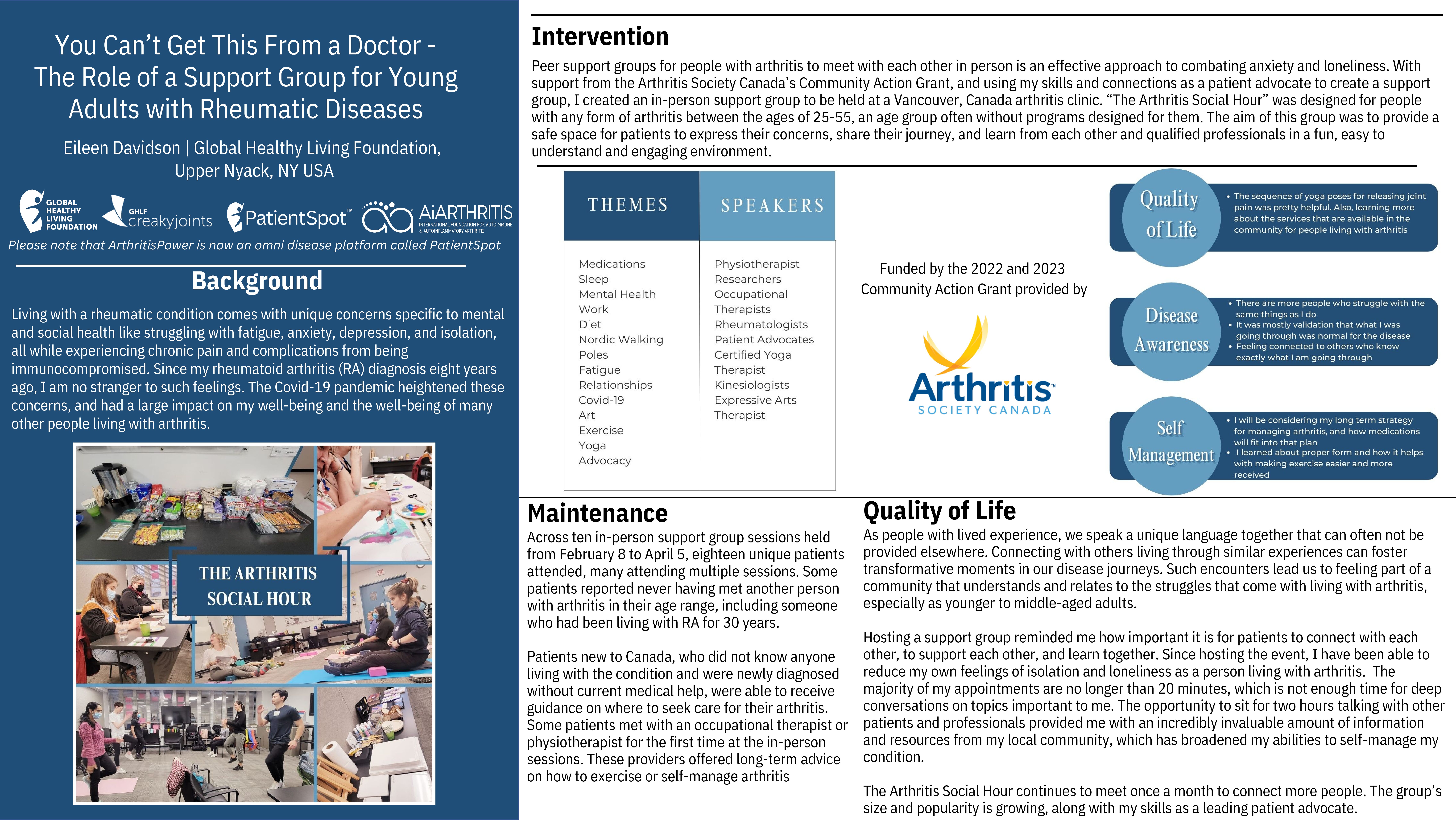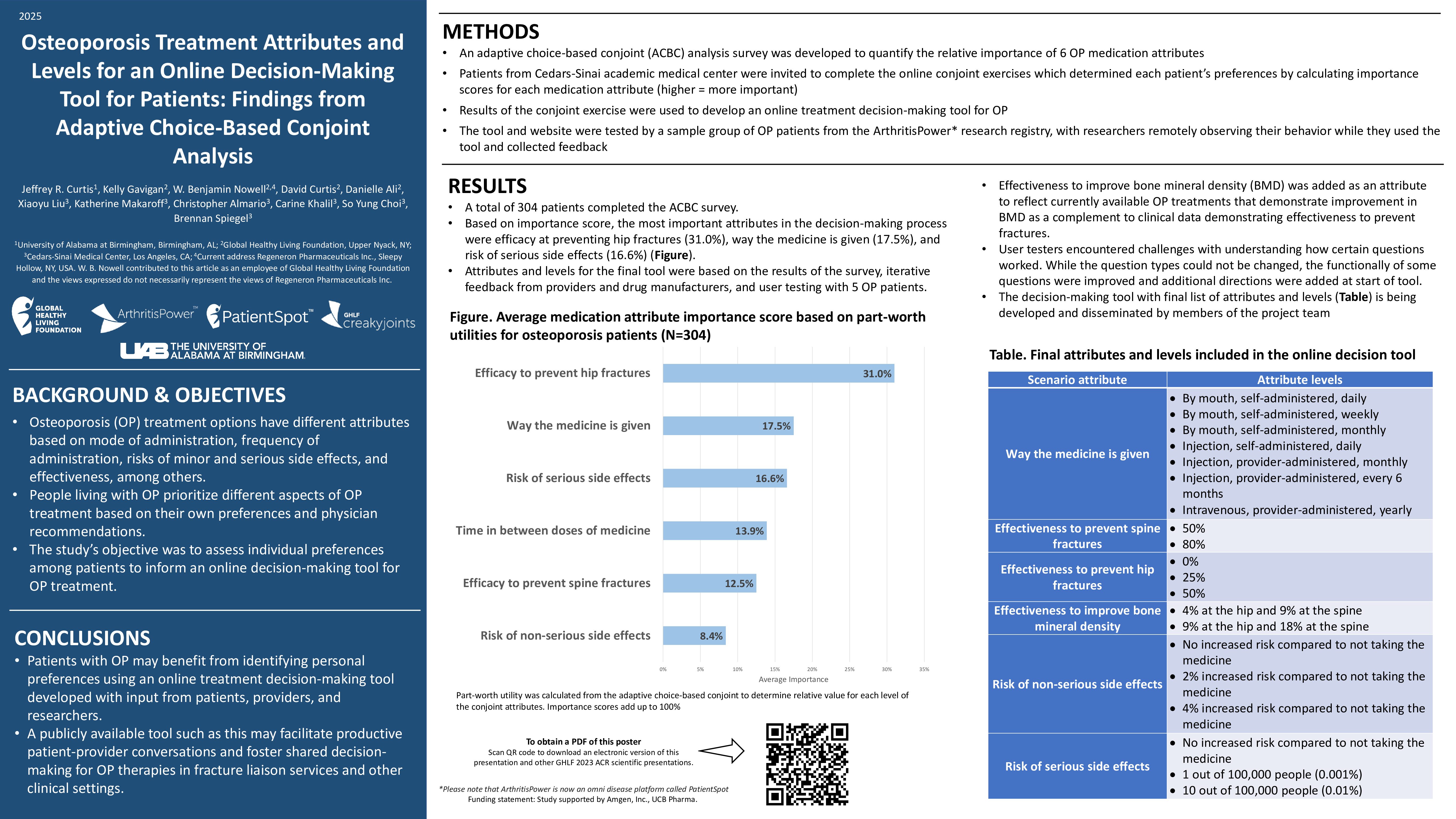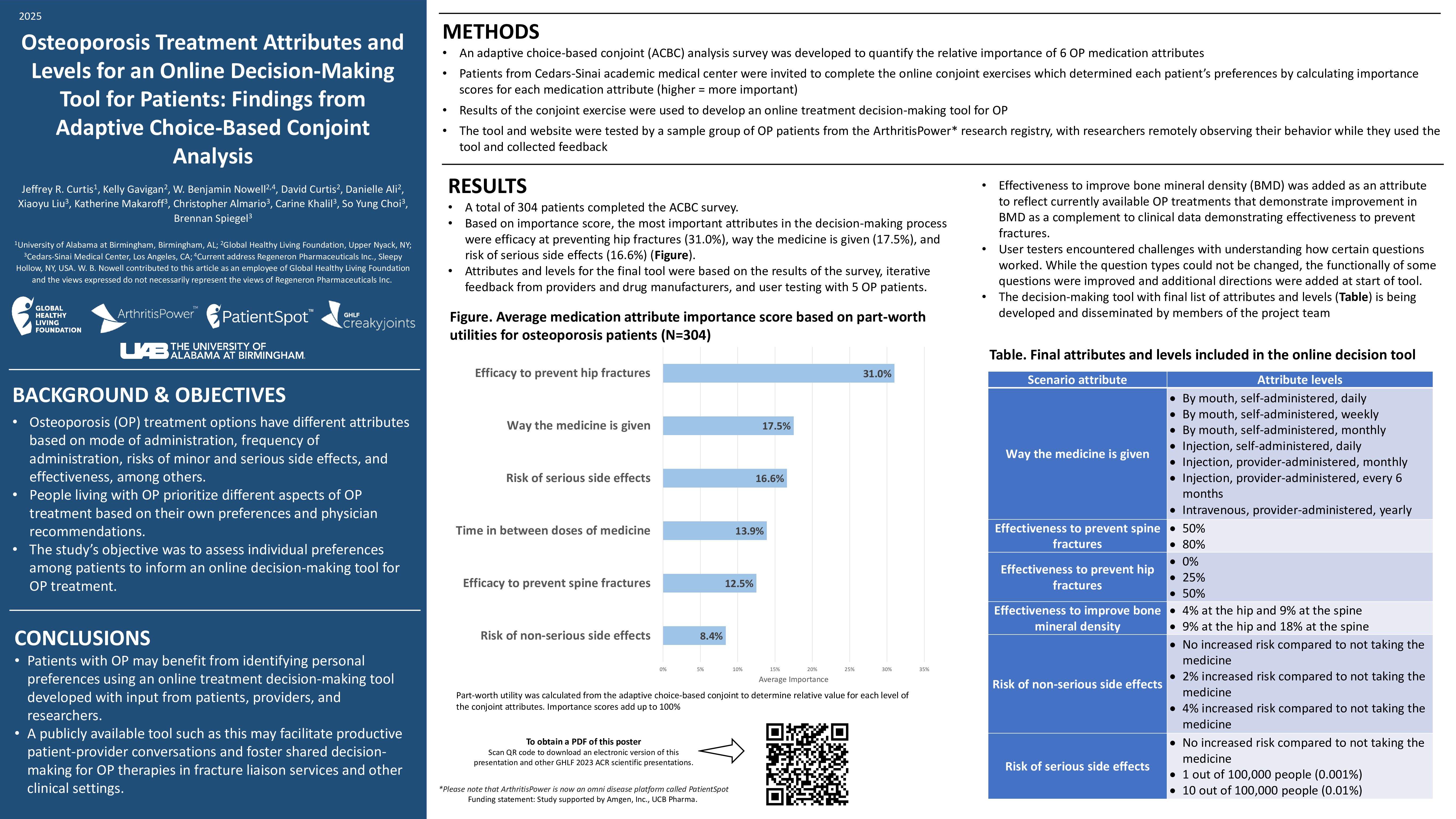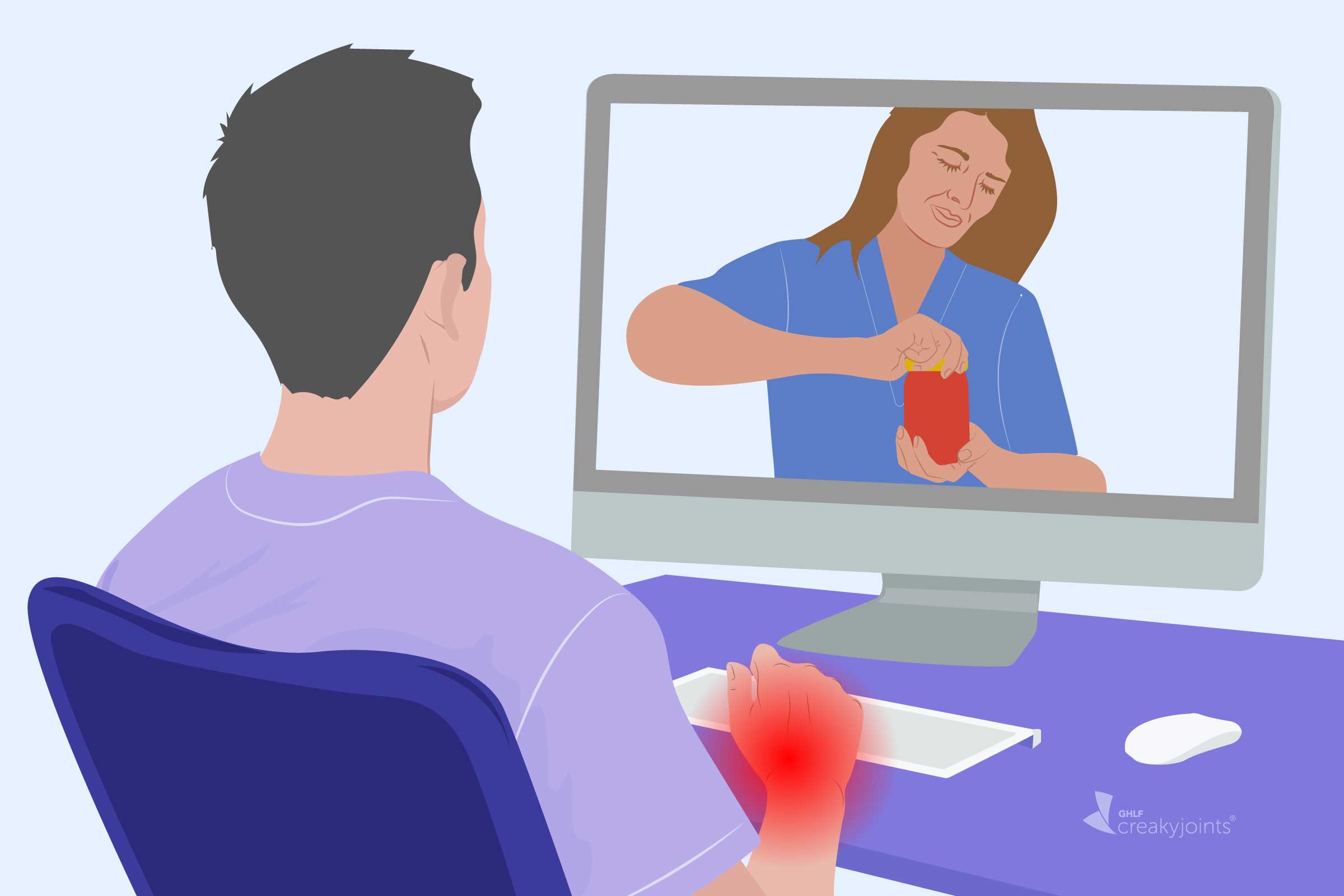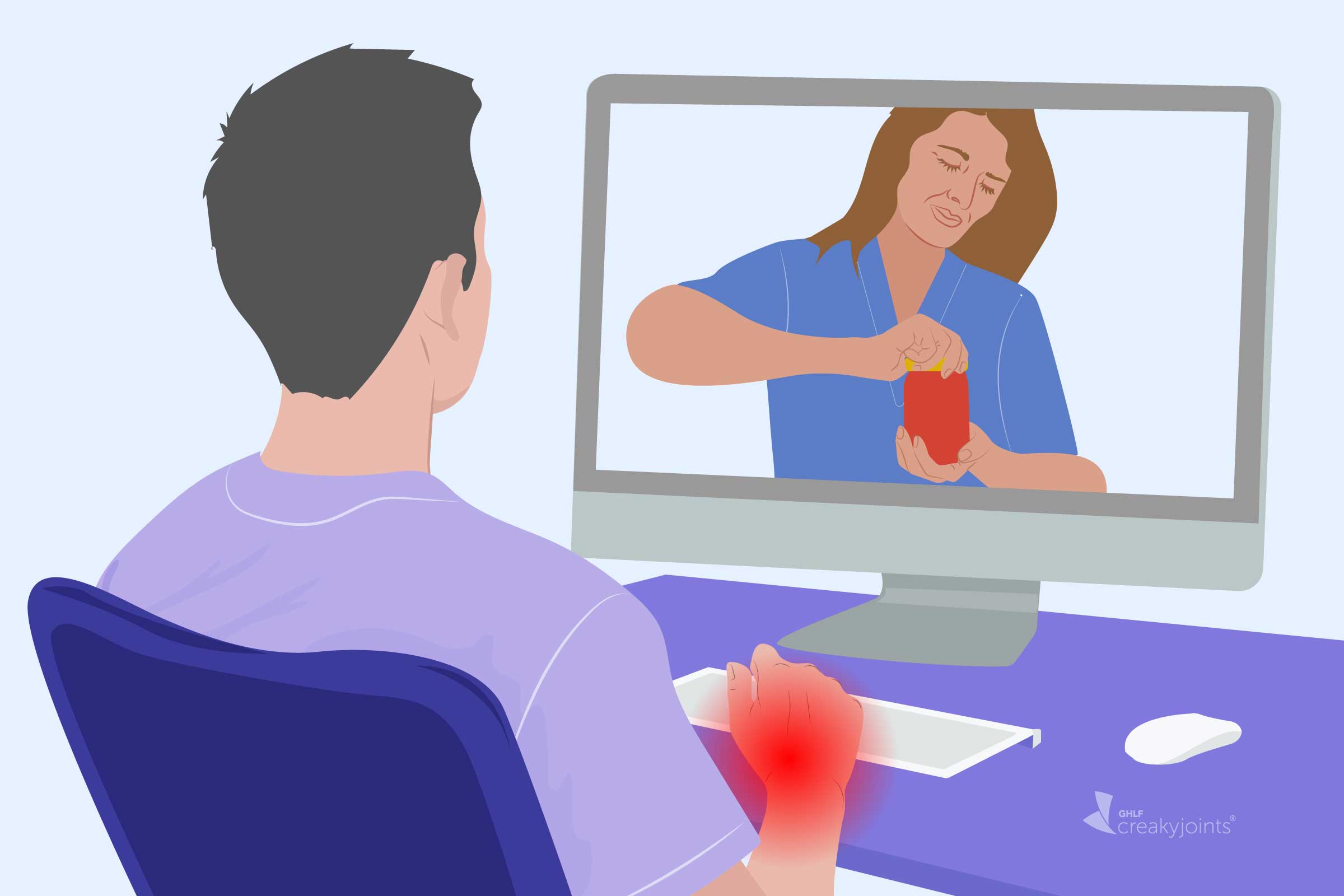Learn more about our FREE COVID-19 Patient Support Program for chronic illness patients and their loved ones.
Receiving news that someone you’ve been in close contact with has tested positive for COVID-19 can be extremely stressful. That may be even more worrisome if you’re immunocompromised, even if you’re fully vaccinated. Whether you have kids heading to school every day or your vaccinated partner has experienced a breakthrough case of the coronavirus, there’s some possibility that someone you live with could contract COVID-19.
However, if you follow a few key steps, you can lower your chances of getting infected yourself or needing hospitalization if you’re immunocompromised. Of course, the level of immunosuppression can vary greatly from one individual to another, so it’s important to speak to your doctor right away for specific guidance if someone you live with tests positive.
“Immunocompromised individuals are a large and diverse group of individuals, who are not all equally at risk of contracting COVID-19 or developing severe disease,” says Sydney Ramirez, MD, PhD, an infectious disease doctor and researcher at the University of California San Diego and La Jolla Institute for Immunology.
“They will also respond differently to vaccination and therapeutics,” continues Dr. Ramirez. “The specific underlying medical conditions that an individual has and the medications that they receive for those conditions or for other conditions will play a role in their ability to mount a protective or durable immune response to COVID-19 vaccination or infection.”
Here are some general steps to follow to help keep yourself and others in your household safe.
Separate yourself from the infected individual
It can be difficult when you live together, but do your best to separate yourself from the person in your home who is positive for COVID-19. If possible, that means staying six feet apart and using a different bathroom and bedroom, per the U.S. Centers for Disease Control and Prevention (CDC). It’s also a good idea to increase ventilation in your home — which helps to remove respiratory droplets from the air — by opening the windows.
Wear a mask at home
“Even if you’ve been vaccinated, including with a third dose of the COVID-19 vaccine, you may still be susceptible to the infection, so it would be important to try to separate if possible,” says Abinash Virk, MD, a consultant in the Division of Infectious Diseases at the Mayo Clinic. “I would also wear a mask at home so at least you can limit the likelihood of getting it. Perhaps the infected person can also be masked, particularly if you can’t separate.”
Get tested at day five after exposure
Per the CDC, it is no longer necessary to quarantine after contact with someone who had COVID-19. If you are exposed to someone who has tested positive for COVID-19, the CDC recommends wearing a quality mask for 10 days and getting tested at day five after exposure. If symptoms arise and you suspect you might have COVID, it is advisable to isolate until you receive a negative test result.
Be prepared to quarantine
However, depending on your level of immunosuppression and risk, your doctor may have specific advice for you. If you do decide to isolate as a precaution or end up getting symptoms, you should keep your loved ones informed about your situation so they can be ready to provide help as needed.
“Given that immunocompromised individuals can be at higher risk for severe COVID-19 and may not respond as well to COVID-19 vaccines, depending on their underlying level and type of immunocompromise, it is important that they have a support system checking in on them to make sure that they are doing well and have all of the necessary supplies and resources they will need for their isolation period,” says Dr. Ramirez.
In terms of keeping distance from the infected individual you live with, if they tested positive for COVID-19 and had symptoms, the CDC says they can be around others (with a mask) if it’s been:
- 5 days since symptoms first appeared and
- 24 hours with no fever without the use of fever-reducing medications and
- Other symptoms of COVID-19 are improving (note: loss of taste and smell may continue for weeks or months after recovery and don’t need to delay the end of isolation)
If they tested positive but never developed symptoms, they can be around others after 5 days have passed since their positive viral test for COVID-19. It’s important to note that after the 5 days have passed, people who recently tested positive for COVID should follow that 5 days with wearing a mask to protect from infecting others. Individuals who had a moderate or severe illness in response to COVID should isolate through day 10.
“For immunocompromised individuals, the isolation period is dependent upon the level of immune compromise and disease severity if they develop COVID-19,” says Dr. Ramirez. “A longer period of isolation from symptom onset, rather than the standard isolation period, has been recommended for individuals with severe to profound immunocompromise or those who have suffered from more severe COVID-19.”
In these cases, a doctor may use testing to help determine when your loved one can end isolation.
When to Get Tested
Even if you’ve been fully vaccinated and have no symptoms of COVID-19, you should get tested at day five after your last exposure to the infected individual, per the CDC.
“If an immunocompromised person is a household contact of an individual who tests positive for COVID-19, they should closely monitor for the development of any signs or symptoms of COVID-19 and get tested after the start of symptoms,” says Dr. Ramirez. “If they do not have symptoms, then they should get tested about 3 to 5 days after their last contact with the person who tested positive.”
Your doctor may recommend additional testing prior in both instances.
“It would be a good idea to get tested again another three to five days after your first test,” says Dr. Virk. “We know most people end up having symptoms within a week to 10 days after exposure.”
COVID-19 Symptoms to Look For
A wide range of symptoms have been associated with COVID-19 since the disease first emerged. Currently, the CDC lists the following as some COVID-19 symptoms:
- Fever or chills
- Cough
- Shortness of breath or difficulty breathing
- Fatigue
- Muscle or body aches
- Headache
- New loss of taste or smell
- Sore throat
- Congestion or runny nose
- Nausea or vomiting
- Diarrhea
These do not list all potential symptoms, which may appear two to 14 days after exposure to the virus. However, even with the Omicron variant circulating throughout the United States, according to the CDC, symptoms haven’t changed drastically since the beginning of the pandemic.
“Generally, symptoms have been similar with Delta variant versus other variants,” says Dr. Ramirez. “Fever, cough, loss of smell or taste, shortness of breath, fatigue and malaise are still common symptoms. Headache, runny nose, sinus pressure, sore throat, body aches, nausea and diarrhea are also frequently reported.”
Symptoms may be milder if you’re vaccinated and get COVID-19 (a breakthrough infection).
“The majority of individuals who have experienced breakthrough infections have had milder and shorter-lived symptoms than unvaccinated individuals who have contracted COVID-19,” says Dr. Ramirez. “However, some individuals who are immunocompromised are unable to or did not form adequate protective immunity in response to vaccination and may have more severe COVID-19 regardless of their vaccination status.”
When Should You Consider Monoclonal Antibodies?
In August 2021, the U.S. Food & Drug Administration authorized REGEN-COV — a monoclonal antibody treatment — to be used to prevent COVID-19 after exposure to an infected person in adults and children (age 12 and older, who weigh at least 88 pounds) who are at high risk for progression to severe COVID-19, including hospitalization or death. Before that, the treatment had already been approved to treat COVID-19 in high-risk individuals.
“As soon as you know you’ve had exposure to COVID-19 through a close contact, contact your health care facility right away and tell them that you’ve just been exposed,” says Dr. Virk. “Ask them what your options are for getting monoclonal antibodies to cut down your risk of getting a full-blown infection. Earlier is better for monoclonal antibodies.”
Monoclonal antibodies are lab-made proteins that mimic the immune system’s ability to ward off viruses like SARS-CoV-2, per the FDA. Monoclonal antibodies may stop the virus from sticking to your cells and help neutralize it — meaning they stop it from replicating and causing infection.
“Immunocompromised individuals should be considered for monoclonal antibody therapy when diagnosed with mild to moderate COVID-19, especially early after the diagnosis, if there are no contraindications to treatment,” says Dr. Ramirez.
REGEN-COV is contraindicated in people who have had previous severe hypersensitivity reactions, including anaphylaxis, to REGEN-COV, per Regeneron.
The Importance of the COVID-19 Vaccine
Most importantly, you should get fully vaccinated to prevent experiencing severe illness should you be exposed to COVID. The CDC recommends that everyone above the age of 12 receive an updated COVID-19 booster to restore immunity that might be waning since a previous vaccination. Since vaccine effectiveness diminishes with time, it is important to stay up to date with boosters. In addition to bolstering immunity, boosters also confer resilience to emerging variants. The most recent booster not only targets the original SARS-CoV-2 variant but also offers protection from the most recent Omicron sub-variants.
It’s also important to speak to your loved ones, particularly those you live with or see regularly, about getting the vaccine. “Household members and other close contacts of immunocompromised individuals should also be fully vaccinated, unless contraindicated, to protect both themselves and others — including their immunocompromised loved ones,” says Dr. Ramirez.
Get Free Coronavirus Support for Chronic Illness Patients
Join the Global Healthy Living Foundation’s free COVID-19 Support Program for chronic illness patients and their families. We will be providing updated information, community support, and other resources tailored specifically to your health and safety.
Caring for Someone Sick at Home. COVID-19. U.S. Centers for Disease Control and Prevention. January 2022. https://www.cdc.gov/coronavirus/2019-ncov/if-you-are-sick/care-for-someone.html.
CDC streamlines COVID-19 guidance to help the public better protect themselves and understand their risk. U.S. Centers for Disease Control and Prevention. August 2022. https://www.cdc.gov/media/releases/2022/p0811-covid-guidance.html.
COVID-19 Frequently Asked Questions. U.S. Food & Drug Administration. September 13, 2021. https://www.fda.gov/emergency-preparedness-and-response/coronavirus-disease-2019-covid-19/covid-19-frequently-asked-questions.
Data and clinical considerations for additional doses in immunocompromised people. U.S. Centers for Disease Control and Prevention. July 22, 2021. https://www.cdc.gov/vaccines/acip/meetings/downloads/slides-2021-07/07-COVID-Oliver-508.pdf.
Fact Sheet for Health Care Providers: Emergency Use Authorization (EUA) of REGEN-COV™ (casirivimab and imdevimab). Regeneron. September 2021. https://www.regeneron.com/downloads/treatment-covid19-eua-fact-sheet-for-hcp.pdf.
FDA authorizes REGEN-COV monoclonal antibody therapy for post-exposure prophylaxis (prevention) for COVID-19. U.S. Food & Drug Administration. August 10, 2021. https://www.fda.gov/drugs/drug-safety-and-availability/fda-authorizes-regen-cov-monoclonal-antibody-therapy-post-exposure-prophylaxis-prevention-covid-19.
Interview with Abinash Virk, MD, a consultant in the Division of Infectious Diseases at Mayo Clinic
Interview with Sydney Ramirez, MD, PhD, an infectious disease doctor and researcher at the University of California San Diego and La Jolla Institute for Immunology
Quarantine and Isolation. COVID-19. U.S. Centers for Disease Control and Prevention. July 29, 2021. https://www.cdc.gov/coronavirus/2019-ncov/your-health/quarantine-isolation.html.
Symptoms of COVID-19. COVID-19. U.S. Centers for Disease Control and Prevention. February 22, 2021. https://www.cdc.gov/coronavirus/2019-ncov/symptoms-testing/symptoms.html.
The Possibility of COVID-19 After Vaccination: Breakthrough Infections. COVID-19. U.S. Centers for Disease Control and Prevention. September 7, 2021. https://www.cdc.gov/coronavirus/2019-ncov/vaccines/effectiveness/why-measure-effectiveness/breakthrough-cases.html.

